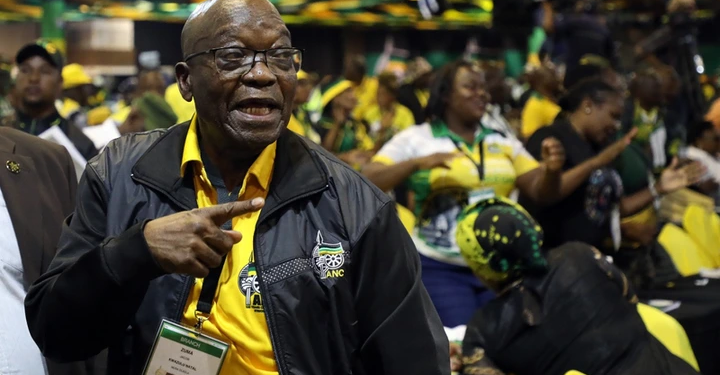Former President Jacob Zuma’s demand to be reinstated as a member of the African National Congress (ANC) has ignited controversy, with political analysts asserting that his move is a calculated effort to destabilize the ruling party at a time when it is particularly vulnerable.
Experts argue that Zuma’s push to return is part of a broader strategy to perpetuate his narrative of victimhood under ANC President Cyril Ramaphosa’s leadership. They see his actions as an attempt to sow discord within the ANC, which is grappling with internal divisions over the government of national unity (GNU).
Zuma Pushes for Reinstatement
Zuma announced that his attorneys had sent a letter of demand to the ANC, requesting the reinstatement of his membership, which he claimed was terminated unprocedurally last year. He has given the party until January 31 to resolve the matter, threatening legal action to protect his constitutional and contractual rights as a loyal ANC member of 65 years.
Zuma was expelled from the ANC for violating its constitution, which prohibits dual membership, after launching the uMkhonto weSizwe (MK) Party last year. His appeal against the decision was unsuccessful.
In a statement, the Jacob G Zuma Foundation accused ANC Secretary-General Fikile Mbalula of “troubling announcements” and actions aimed at intimidating and insulting Zuma’s representative, Tony Yengeni, a senior ANC member. Mbalula recently announced that Yengeni would face disciplinary charges for criticizing the ANC’s choice of venue for its 113th birthday celebration.
Analysts Question Zuma’s Motives
Professor Ntsikelelo Breakfast, director of the Centre for Peace, Security, and Conflict Resolution at Nelson Mandela University, called Zuma’s demand illogical, given his leadership of a rival political party.
“He established another party where he serves as president. What business does he have with his previous party, except to sow discord and position himself as a victim? This move appears mischievous and contradictory,” Breakfast said.
Independent political analyst Professor George Tsibani from the University of Johannesburg echoed this sentiment, emphasizing that the ANC’s constitution does not permit members to belong to another political party unless it is part of an alliance, such as the SA Communist Party or Cosatu.
“Zuma has no case here. His dual membership claim contradicts the rules of the ANC,” Tsibani stated.
Motive Behind MK Party
Political commentator Pule Monama suggested that Zuma’s establishment of the MK Party was a tactical move aimed at regaining influence within the ANC.
“The question is whether MK members knew what Zuma’s endgame was when he formed the party. Was it about controlling the ANC or creating leverage for himself?” Monama asked.
Monama added that Zuma would need to account to MK members, particularly those who joined out of dissatisfaction with the ANC, for his actions and motivations.
Uncertain Future
Zuma’s bid to return to the ANC is seen by many as an improbable endeavor, given his current position as leader of a rival party and the ANC’s constitutional limitations. Analysts believe his actions may further destabilize an already fragmented ANC, raising questions about his ultimate objectives and the impact on South Africa’s political landscape.
As January 31 approaches, the ANC faces the challenge of addressing Zuma’s demand while managing the broader implications for party unity and credibility. Whether Zuma’s efforts succeed or further deepen divisions remains to be seen.






















